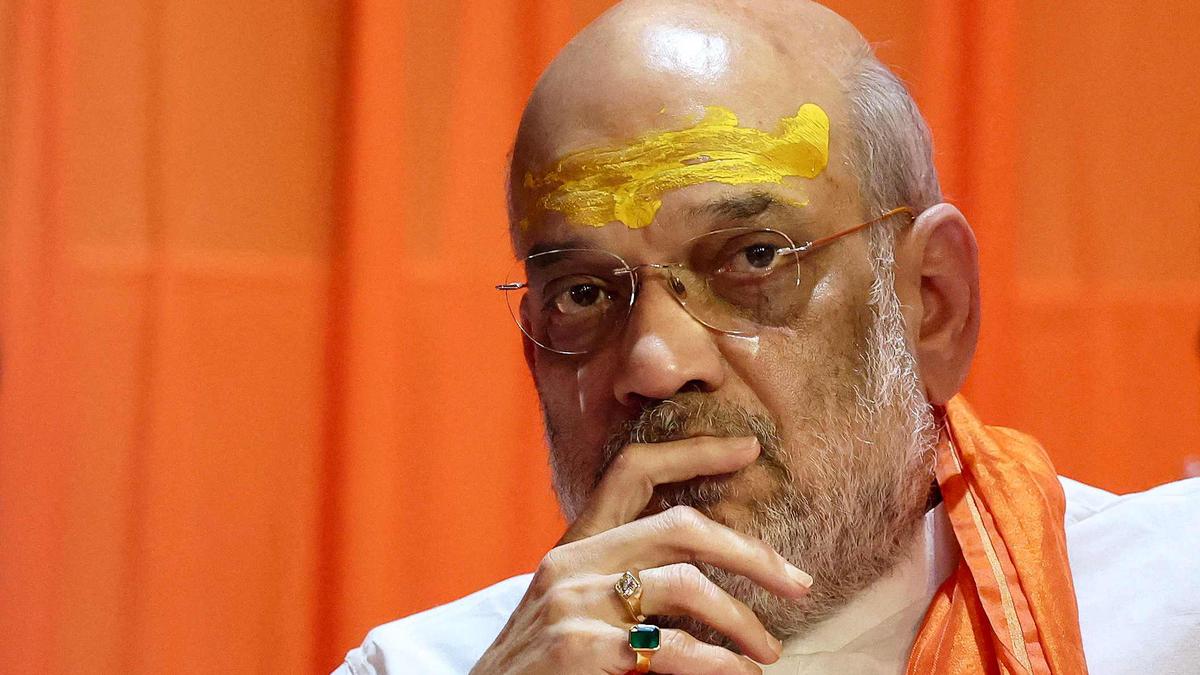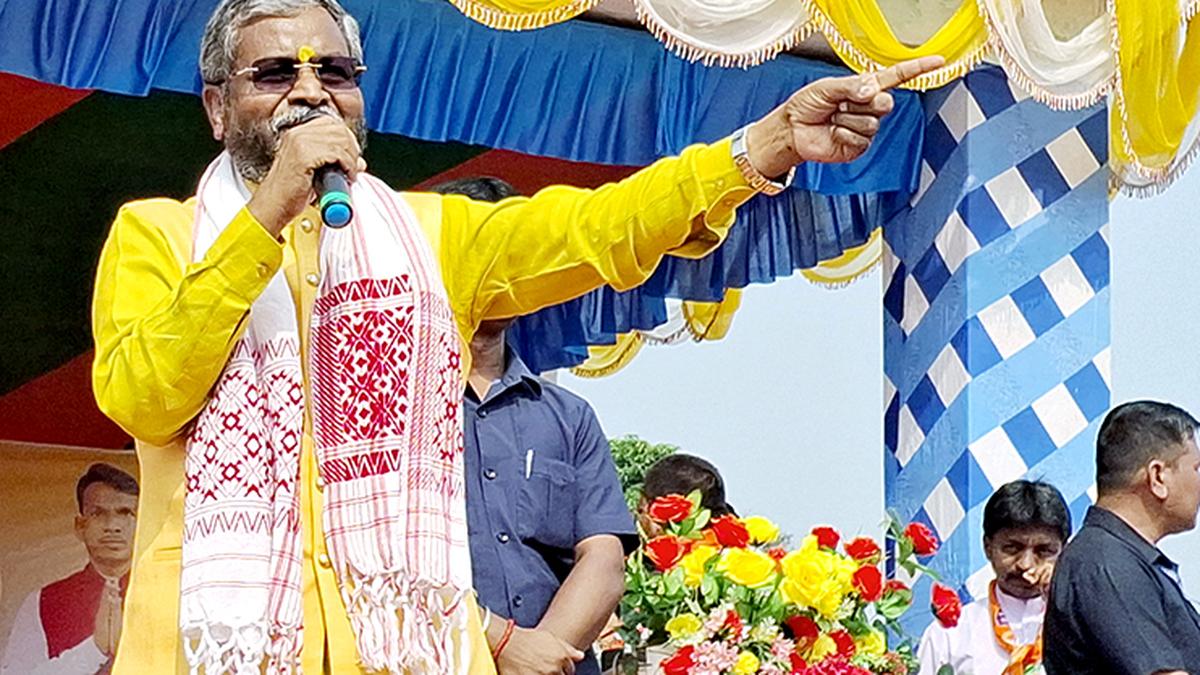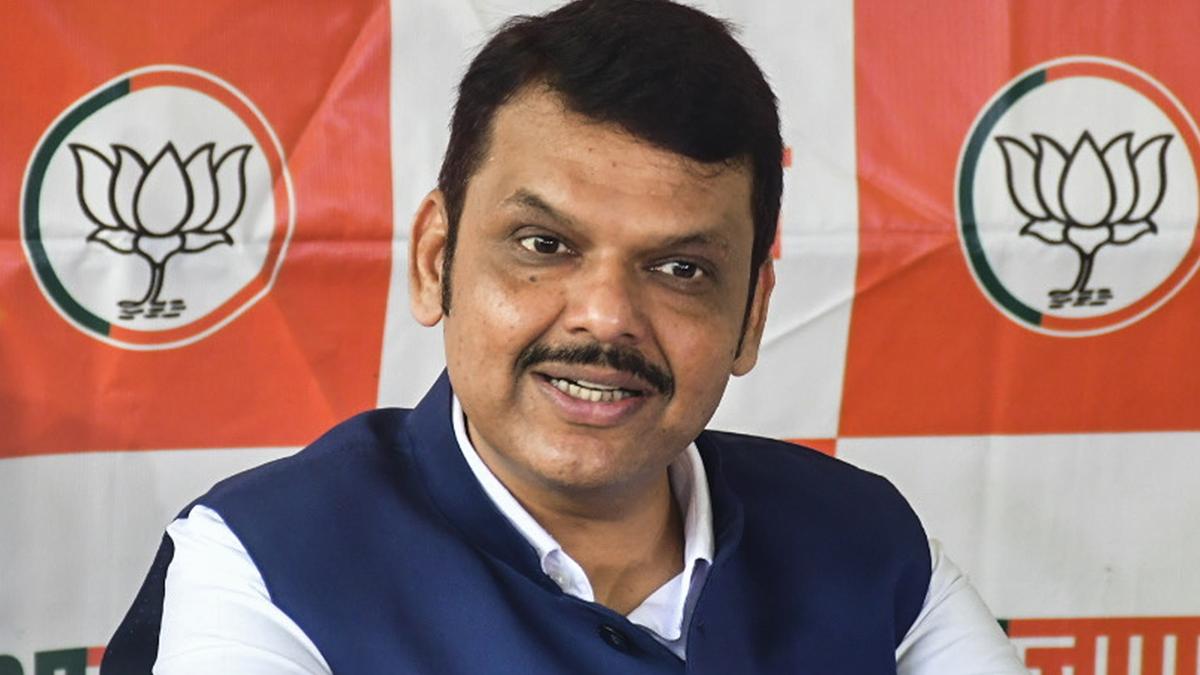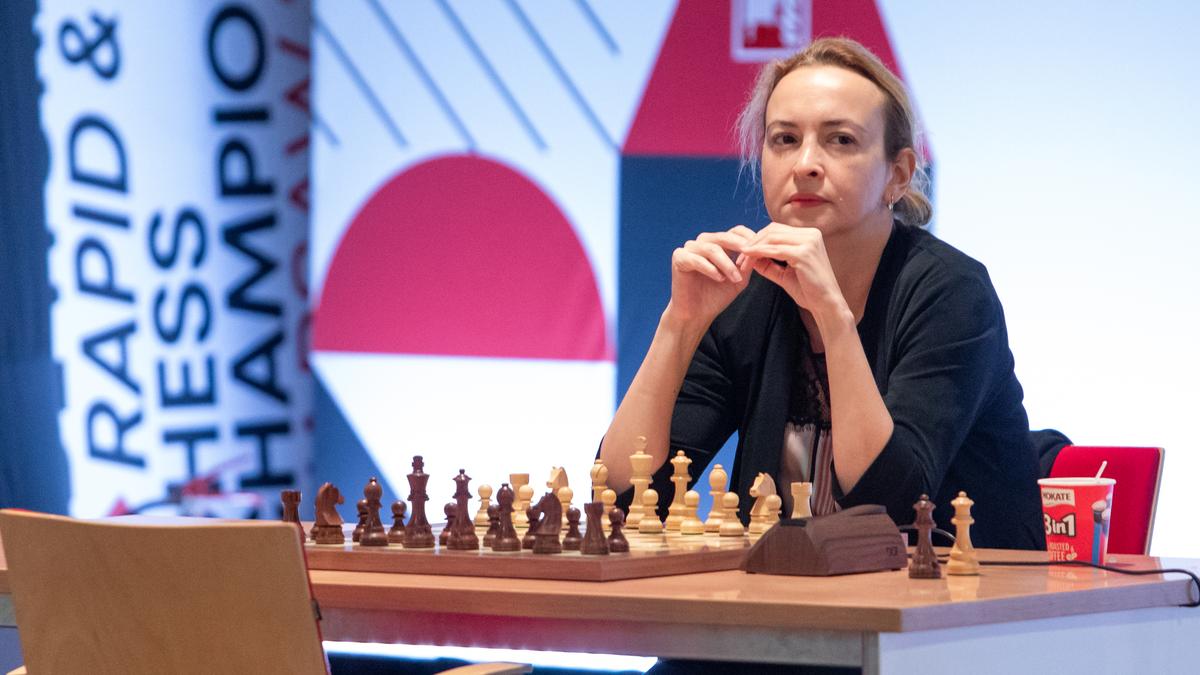As the Lok Sabha election moves northwards and towards eastern Uttar Pradesh, The Hindu’s Nistula Hebbar caught up with Union Home Minister Amit Shah in Varanasi, for an interview on how he sees this election panning out. Mr. Shah expressed confidence that the BJP would get a comfortable, full majority government. He cited the higher rates of polling in the Kashmir Valley as a win over naysayers who had apprehended alienation from India in Kashmir following the abrogation of Article 370 in 2019.
Mr. Shah said that the rise in voting percentage from 14% in the past to 37% on May 14 in Srinagar, which went to polls in the fourth phase was the “greatest testament to the rightness of the decision” to removing Article 370.
Article 370 had provisions for special status being accorded to the erstwhile state of Jammu and Kashmir, and which was removed in August 2019 by Parliament. The 2024 Lok Sabha polls are the first set of polls on the basis of political parties since then.
Mr. Shah also explained the BJP’s decision not to field a candidate in the three Valley seats of Srinagar, Baramulla and Anantnag-Rajouri. “There was an apaprachar (propaganda) against us that the Centre was doing development work in the J&K Valley to enforce rajnitik prabhutva (political sovereignity) of the BJP there. After much serious thought, we decided that we will first build up our organisation on the ground and then give a candidate to fight polls,” he said.
“The bigger point is that there is no greater testament to the rightness of the decision removal of Article 370 than the polling percentages going up from 14% in the past to 37% in the Valley in this phase of polling. And let me tell you, for the first time, more than 40% of displaced Kashmiri Pandits have cast their votes when in the past this figure was in single digits,” he added.
He also addressed the demands for restoring statehood to Jammu and Kashmir after the revocation of Article 370 also led to it being reduced to the status of a Union Territory. “See, I speak with a sense of sanctity in Parliament and while the J&K Bill was debated I said, first we will have President’s Rule, then the Bill will be fully implemented, followed by panchayat polls, delimitation, reservations, Assembly polls and statehood. I said this on the floor of Parliament,” he said.
Excerpts from the interview:
‘We will win seats in all southern States’
With four phases done, what is your assessment of the polls so far?
In 2014, the voter wanted to replace the United Progressive Alliance (UPA) and bring us. In 2024, we are being voted back on our record, and I feel this is for the first time that a government in India will get a positively affirmative vote based on hope. There is no doubt that the NDA is on its way to 400 paar and that Prime Minister Narendra Modi will form the government with a good majority.
There have been concerns expressed that the overall percentage of polling has come down.
I was concerned as well before my own date of polling in the third phase. But on that day (during polling in Gandhinagar) I was among the BJP workers and voters, and I was assured that not only will my lead sustain, it will go up. It was clear that our voters had turned up and Congress voters, anticipating defeat, had stayed away.
This time the BJP has invested a lot of political capital in the South, what is your expectation?
I can tell you clearly that BJP will emerge as the single largest party from the five southern states taken together. We will get seats in all states, including Kerala and Tamil Nadu.
Delhi Chief Minister Arvind Kejriwal, after coming out on bail, has said Prime Minister Modi will demit office after reaching 75 years of age and that someone else will succeed him.
The Delhi Chief Minister should instead worry about designating his replacement as the period of interim bail will be up on June 2. Prime Minister Modi will complete not just the next term but will be our leader in 2029 as well.
What are your views on Mr. Kejriwal securing bail and how do you see this affecting the polls?
I do not want to comment on the Supreme Court’s decisions, but to interpret this as a ‘victory’ is wrong. The charges against him have not been quashed. All he has been granted is interim bail, and conditions for that include not doing any official work related to being Chief Minister. How is that a victory? This will have no effect on the polls as, wherever he goes, it will strike [up] talk on the liquor policy scam.
Why has the BJP not put up candidates in the Kashmir Valley seats?
There was an apaprachar (propaganda) against us that the Centre was doing development work in the J&K Valley to enforce rajnaitik prabhutva (political sovereignity) of the BJP there. After much serious thought, we decided that we will first build up our organisation on the ground and then give a candidate to fight polls. The bigger point is that there is no greater testament to the removal of Article 370 than the polling percentages going up from 14% in the past to 40% in the Valley in this phase of polling. And let me tell you, for the first time, more than 40% of displaced Kashmiri Pandits have cast their votes, when in the past this figure was in single digits.
J&K parties have again stressed that they want the full restoration of Statehood and it will be an issue if not done before Assembly elections.
See, I speak with a sense of sanctity in Parliament and while the J&K Bill was debated, I said, first we will have President’s Rule, then the Bill will be fully implemented, followed by panchayat polls, delimitation, reservations, Assembly polls, and Statehood. I said this on the floor of Parliament.
The State of Manipur has been in the grip of violence for more than a year now. Why hasn’t the government got a grip on things there?
This is ethnic violence, and in India in the past, we have seen that when such kind of conflict breaks out, it takes at least a year-and-a-half or more to be completely over. For the last seven months at least, we have seen only sporadic incidents and no big violent event, and we will be looking into what can be done further after the polls.
The Supreme Court’s decision on electoral bonds has revealed donations, etc., to parties, with your party being the biggest beneficiary.
One needs to see this with a sense of proportion. The BJP got ₹6,060 crore with governments in 13 States and 383 MPs. The rest of the money went to Opposition parties, around ₹6,450 crore. Parties like the TMC (Trinamool Congress), with a government in one State and 35 MPs, got ₹1,609 crore. If the BJP got money in the ratio that these parties got per capita on legislators, then we should have got, just as in the case of TMC, ₹20,000 crore.
The maximalist position of the ‘400 paar’ slogan and statements by your MPs, including Anant Hegde and Jyoti Mirdha have, it is said, spooked voters about a brute majority being used to end reservations.
The Opposition has been for years spreading this canard. They did this even during the Bihar polls [of 2015]. We have clarified it strongly that till there is even one BJP MP, reservations for SCs (Scheduled Castes)/STs (Scheduled Tribes) will not be touched. My party is not the one with a history of misusing a majority. That was under Congress governments, when they imposed the Emergency, changed the Preamble [of the Constitution], and made Constitutional changes.
Then why speak of a 400-mark brute majority?
The NDA provided a strong, stable government for the last 10 years due to which we took big, historic decisions and accelerated the pace of growth. Our government showed a 60% rise in road building in its 10 years compared to the UPA; doubled the rural road network to 7.55 lakh kilometres in the same period; from five waterways in 2004, we are 111 now; nearly 170 panchayats are connected via optic fibres now compared to just 111 in 2004. To continue this work is why we ask for a stable government with a full majority.
A lot of talk is on about how, at the start of the campaign, your leaders spoke of development, etc., but now speak about mangalsutra and Hindu-Muslim issues.
We speak of development in every speech that we make on the campaign trail. But when someone speaks of bringing in Muslim reservations, of giving up claim on POK (Pakistan Occupied Kashmir), or on bringing in personal law, we have to speak up and counter. These issues are as important for the country — as much as development. How is this communal?
Your ally N. Chandrababu Naidu, however, says that he is committed to reservations for Muslims.
While finalising the Constitution of this country, these issues were gone into and debated in great detail. Religion-based reservations are completely unconstitutional. What Chandrababu Naidu has said is his party’s stand, his agenda. The BJP is clear that we go by our own views. In coalitions in the past too, under Atal-ji, we had many partners who had different views, but we persisted with our agenda.
It is being said your party’s government is in a minority in Haryana.
We have just proved our majority, but our people tell us that they will be asking for a session of the Assembly after the polls are over.
What happened to the possibility of a BJP-Biju Janata Dal (BJD) alliance?
Look, at the level of the States, these kind of talks keep happening. But our entire cadre was of the view that this time, we should go into the polls alone, and that Odia language, culture and literature have been made into an issue of Odia pride by the people of the State. In the BJP, it is almost impossible to go against the collective view of our cadre.
Why is there no mention of a National Register of Citizens (NRC) in your manifesto?
There are many views on the NRC and the BJP believes that we must discuss this across the board with everyone, and at the appropriate time, we will do so.
Nearly 31% of your party tickets have been given to outsiders from your party, creating resentment within.
How can they be considered outsiders if they have been in the party for over 12 years and through three general elections? Everyone comes from somewhere. I too joined BJP at some point, I wasn’t born as a member.
Published – May 14, 2024 05:35 pm IST





